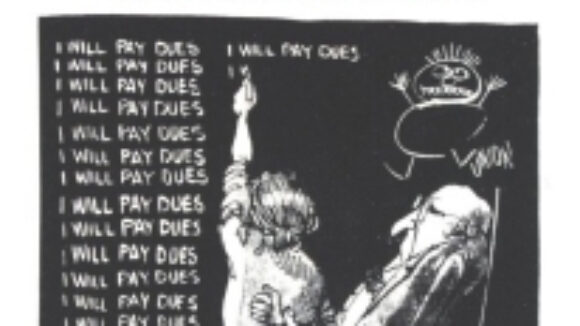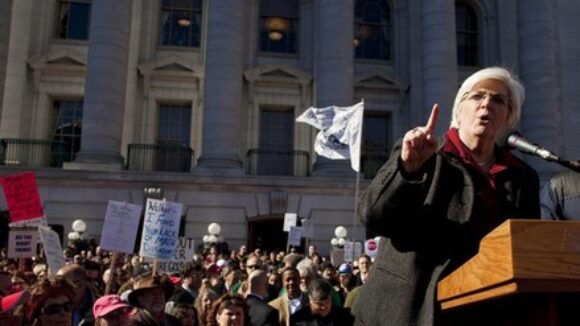Unionists Hijacking Charter Schools
Terrance Scanlon finds compelling evidence that the union bosses have sent their sights on charter schools which are not required, currently, to join union collective bargaining units. The union bosses see this both as a threat and a pool of potential union dues that are not being tapped: If you can’t beat them, take them over. That seems to be the new union strategy on charter schools. Charter schools are publicly funded schools that are governed by private groups that sign a contract, or charter, with the state. The charter requires that the school meet certain standards of accountability in return for taxpayer funding, but in other areas it exempts the school from many burdensome state or local regulations. Some of the most burdensome are rules required by labor unions. Charter school teachers usually are not required to join existing union collective-bargaining units. This means charter schools can more easily promote good teachers and fire bad ones. But, of course, this has made charter schools targets for hostile union action. Unions correctly view charter schools as a threat to their stranglehold over public education and the tax dollars that come with it. Unions have denounced charter schools for “skimming” off the best students from the public schools, and they have sued school districts that introduce charter schools. Unions have tried to block or repeal charter school laws, and they’ve tried to limit the number of charter schools allowed by states. But in Minnesota, the teachers unions are moving in a new direction. State officials recently have given the Minnesota Guild of Charter Schools, an organization created by the Minneapolis Federation of Teachers (MFT), the right to authorize charter schools. The prospect of union-authorized charter schools disturbs many observers, who predict it will lead to conflict. A report sponsored in part by the Progressive Policy Institute summarized the source of the hostility between the two sides: “Unions believe in professionalism through clearly defined roles, rights and responsibilities for teachers. Charter school leaders equate this vision of professionalism with resistance to change and protection of unfit teachers. Charter leaders believe in competition and entrepreneurialism. Union leaders equate these ideas with indifference to disadvantaged students and treatment of teachers as commodities.”





